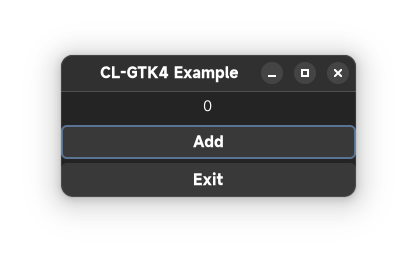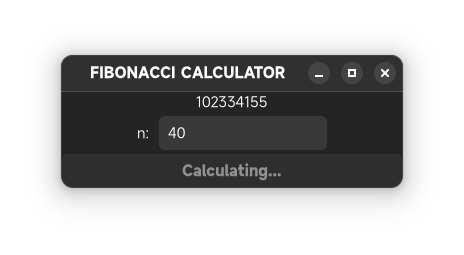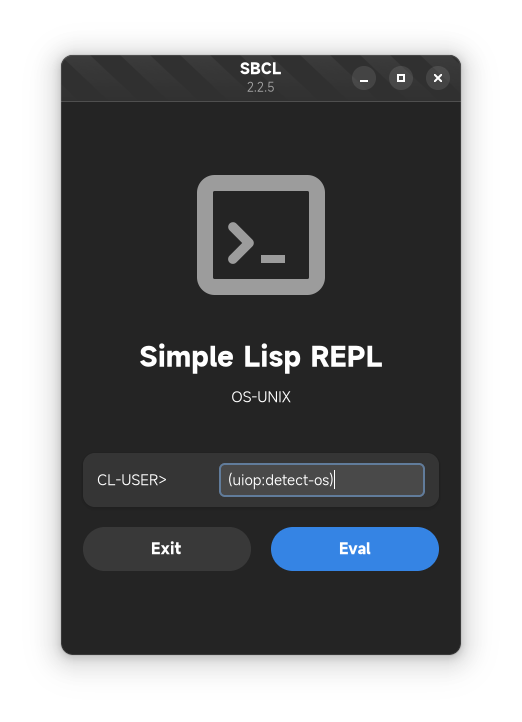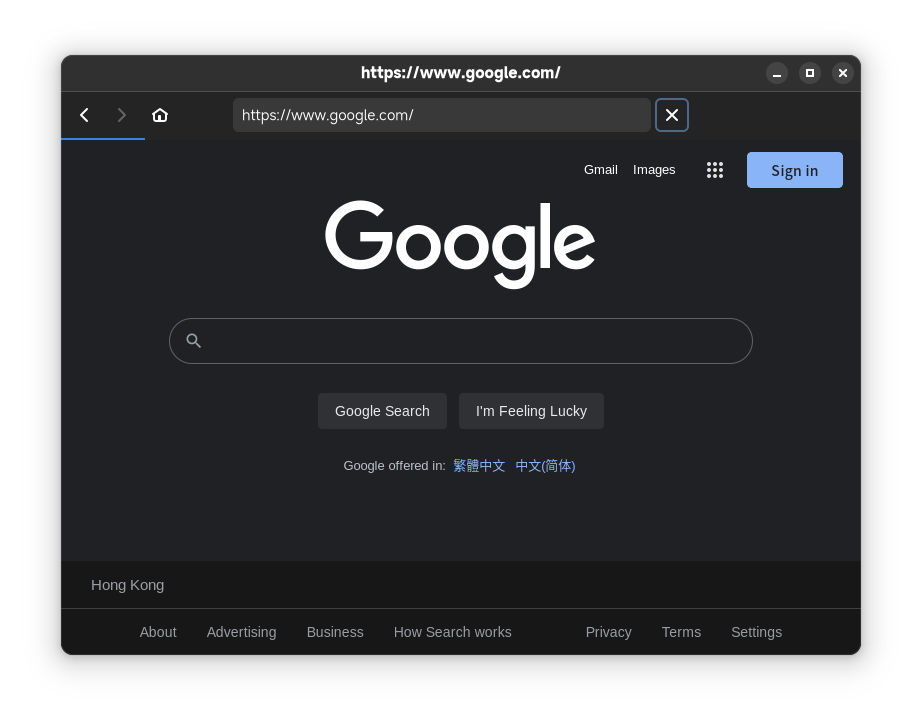Before getting started, please ensure these libraries are available in your system:
- GTK4
- GObject Introspection
- WebKit2GTK (optional)
- libadwaita (optional)
Theoretically, the application built with cl-gtk4 can run on most systems supported by GTK4 and most implementations that support CFFI callback (required by cl-gobject-introspection).
The examples are tested to run on following implementations:
- SBCL
- Microsoft Windows
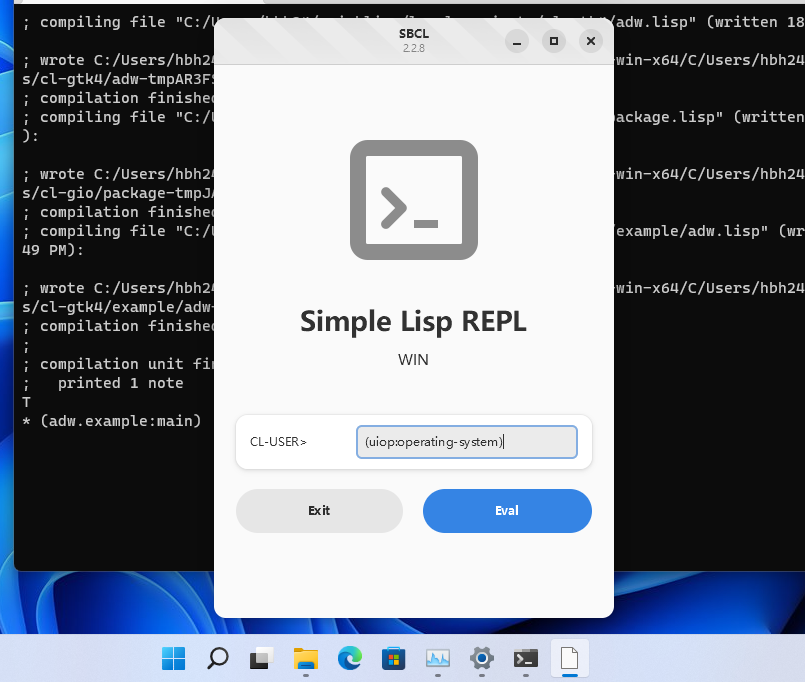
- MacOS
See: https://ibb.co/7KZz3r2 - GNU/Linux
See the screenshots in the Examples section.
- Microsoft Windows
- CCL
- ECL
- ABCL
- Currently,
cl-gtk4is available on Ultralisp, so it can be downloaded via Quicklisp with Ultralisp installed as its distribution. To installcl-gtk4manually, you can clone this repository along with the following dependencies into thelocal-projectsunder your Quicklisp installation root: - Load the library with:
(ql:quickload :cl-gtk4)(ql:quickload :cl-gtk4.adw)(if you need libadwaita)(ql:quickload :cl-gtk4.webkit2)(if you need WebKit2GTK)
- For GTK4 usage, please refer to GTK API reference and check out the conversion rules for these APIs.
Please note that GTK runs in a single thread and is NOT thread-safe, so all the UI-related operations must happen in GTK main event loop, which means you cannot write the code like this:
(let ((label (make-label :str "0"))
(count 0))
(bt:make-thread
(lambda ()
(loop :repeat 5
:do (setf (label-text label) (format nil "~A" (incf count)))
(sleep 1)))))GLib provides idle_add and timeout_add to add a function to execute in the main event loop,
which is thread-safe so that it can be called in other threads.
cl-glib wraps idle_add and timeout_add, so that you can pass Lisp functions to them.
It also provides these two APIs for convenience:
glib:with-main-event-loop
Execute the body in GTK main event loop, in which you can access the UI safely:(let ((label (make-label :str "0")) (count 0)) (bt:make-thread (lambda () (loop :repeat 5 :do (glib:with-main-event-loop (setf (label-text label) (format nil "~A" (incf count)))) (sleep 1))))) ; Don't put this into `glib:with-main-event-loop'
glib:funcall
Just likecl:funcall, it calls a function with the rest of its arguments, but within GTK main event loop:(let ((window (make-application-window :application app))) (bt:make-thread (lambda () (sleep 1) (glib:funcall #'window-present window))))
To run this example, eval the following in your REPL:
(ql:quickload :cl-gtk4/example)
(gtk4.example:simple)Fibonacci Calculator (Multi-threading)
To run this example, eval the following in your REPL:
(ql:quickload :cl-gtk4/example)
(gtk4.example:fibonacci)Simple Lisp REPL (Libadwaita)
To run this example, eval the following in your REPL:
(ql:quickload :cl-gtk4.adw/example)
(adw.example:main)Simple Web Browser (WebKit2GTK)
To run this example, eval the following in your REPL:
(ql:quickload :cl-gtk4.webkit2/example)
(webkit2.example:main)The examples are ready for being built into executable if the implementation supports :program-op:
(asdf:operate :program-op :cl-gtk4/example)Then you could find the executable file under the examples folder.
Note that:
- On ECL, for unknown reason, the
:entry-pointof the ASDF system is ignored. This command should be used instead:(asdf:make-build :cl-gtk4/example :type :program :epilogue-code '(progn (uiop:symbol-call :gtk4.example :simple) (si:exit)))
- On Microsoft Windows, it’s recommended to launch your application via Dependency Walker, then the shared libraries used by your application would appear in it.
You should copy all these
.dllfiles into the folder where you place the executable file. If you are using MSYS2, the folder structure might be like this:. ├── bin │ ├── gdbus.exe │ ├── libgio-2.0-0.dll │ ├── libgirepository-1.0-1.dll │ ├── libglib-2.0-0.dll │ ├── libgobject-2.0-0.dll │ ├── libgtk-4-1.dll │ ├── your_application.exe │ └── ... ├── lib │ ├── girepository-1.0 │ ├── gtk-4.0 │ └── ... └── share ├── icons └── ...The folder
lib/girepository-1.0is mandatory, without which your application won’t work as expected.
